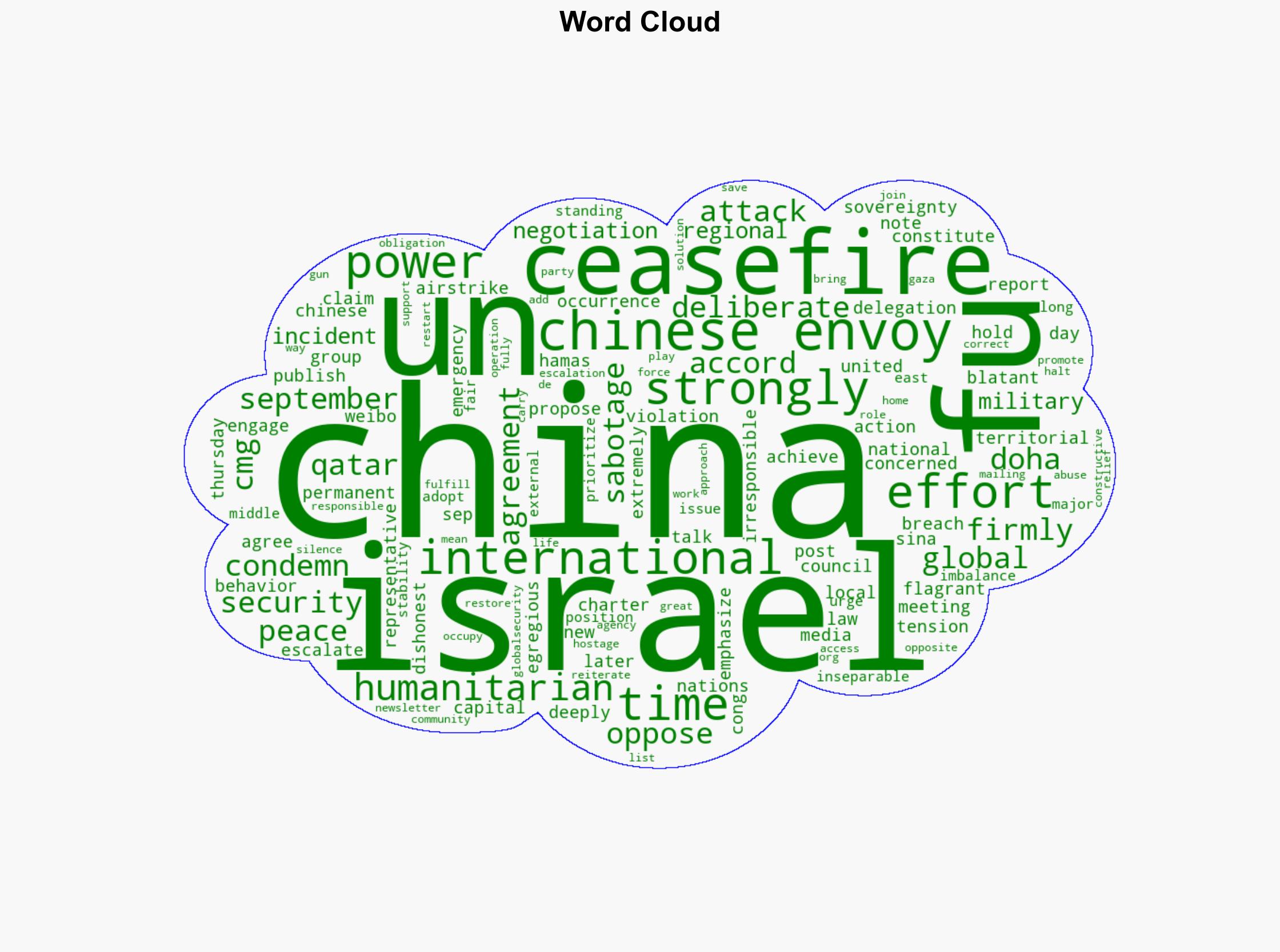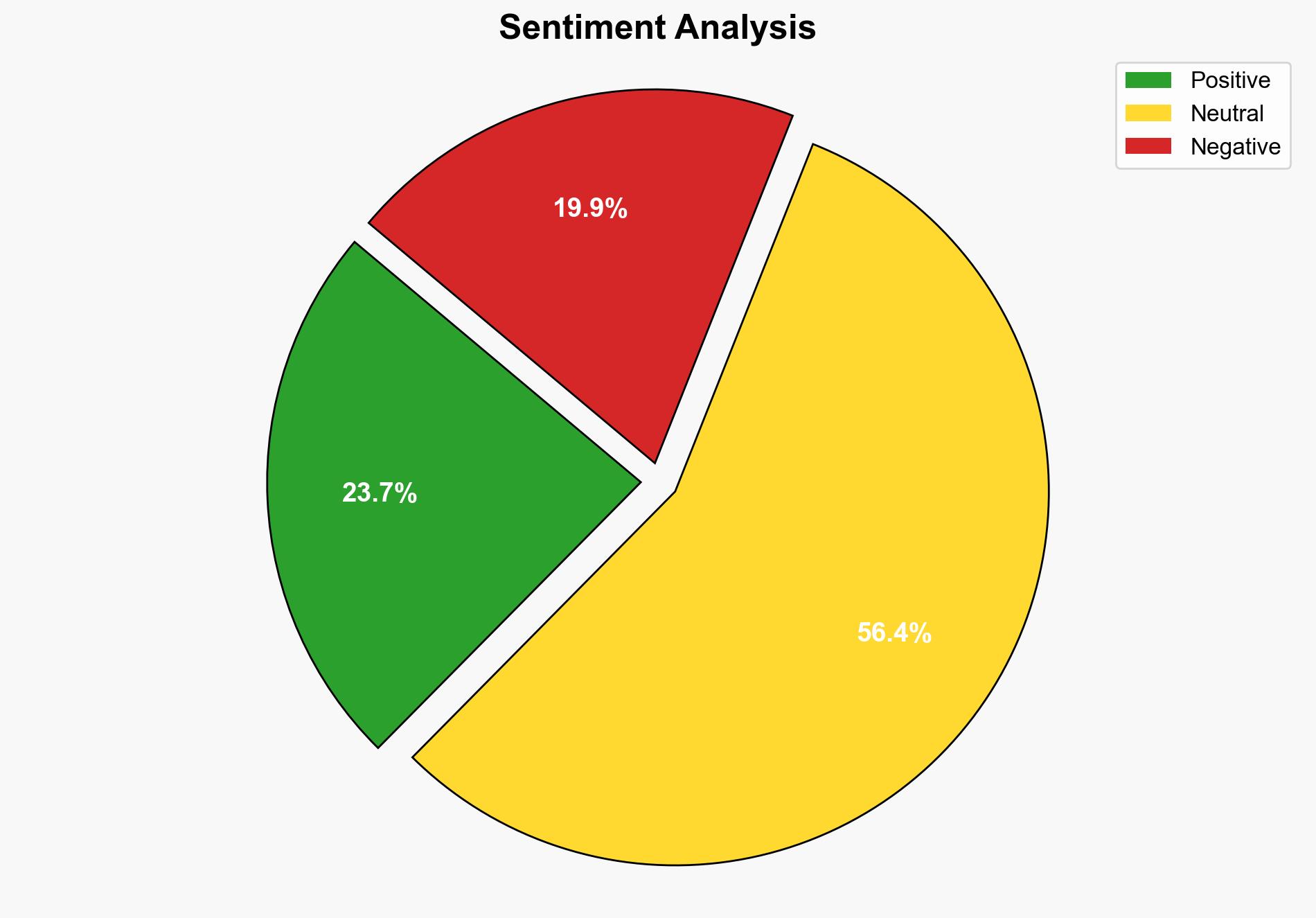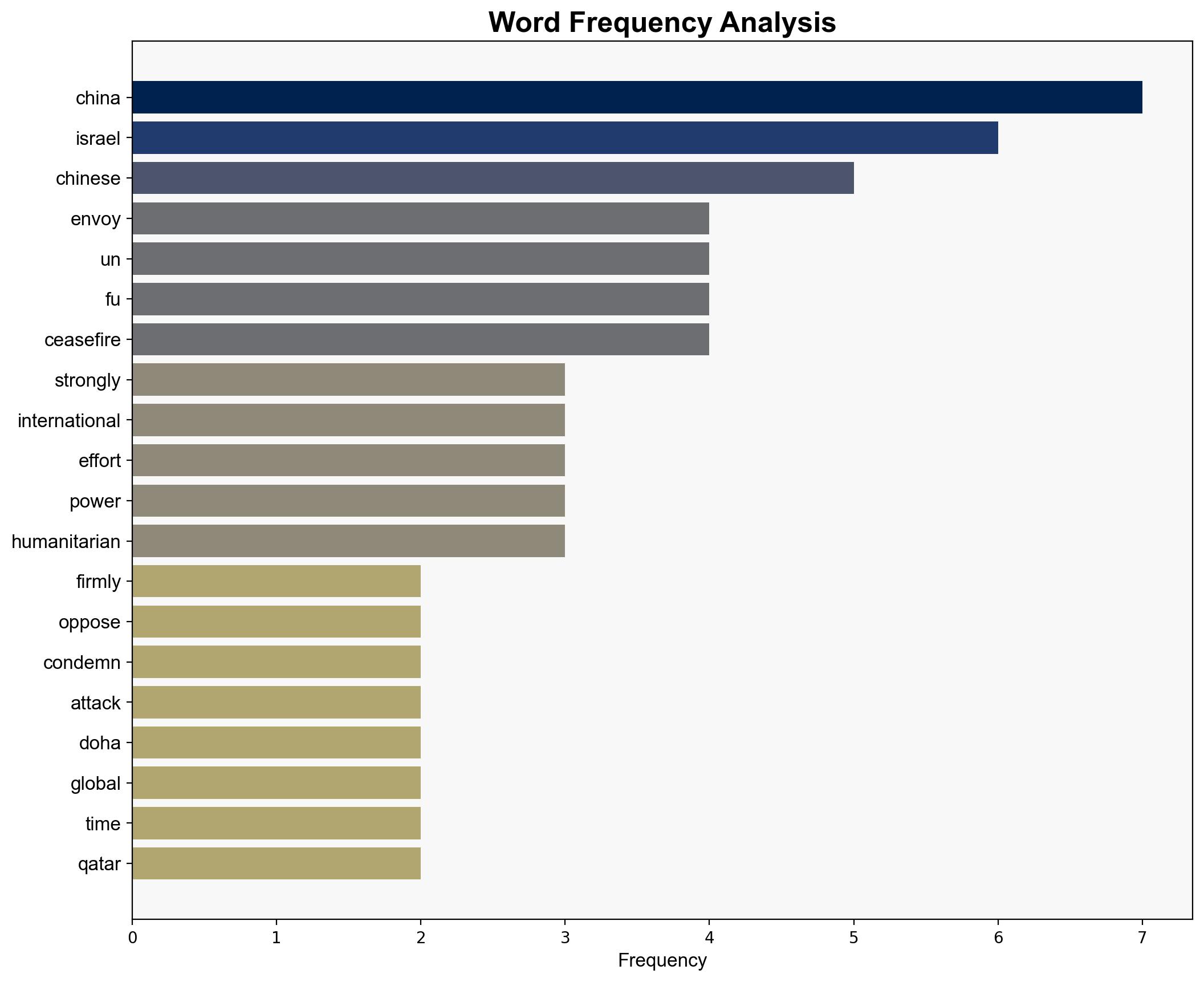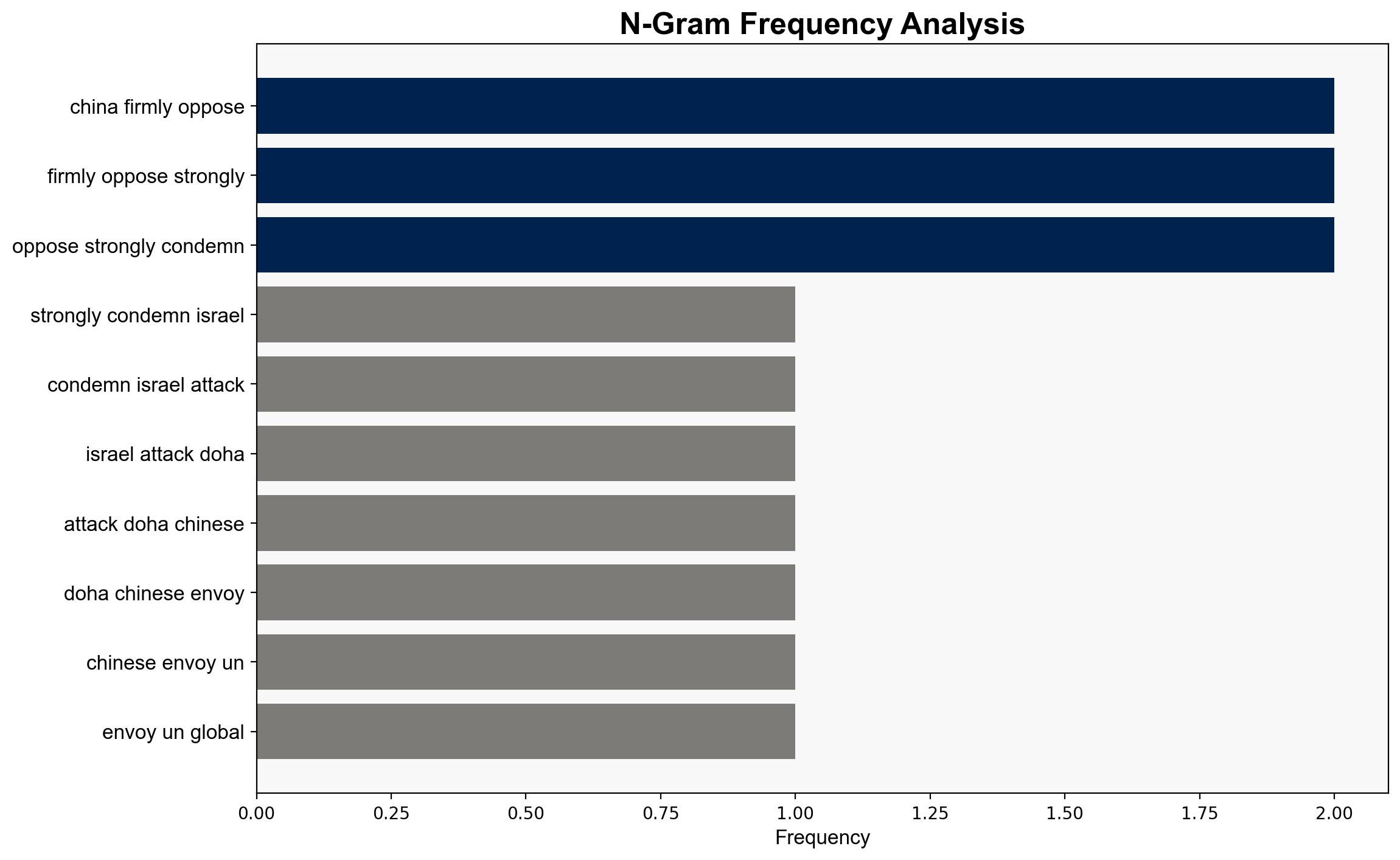China firmly opposes strongly condemns Israel’s attack on Doha Chinese envoy to UN – Globalsecurity.org
Published on: 2025-09-12
Intelligence Report: China firmly opposes strongly condemns Israel’s attack on Doha Chinese envoy to UN – Globalsecurity.org
1. BLUF (Bottom Line Up Front)
China’s condemnation of Israel’s actions in Doha reflects a strategic positioning in Middle Eastern geopolitics, potentially aimed at increasing its influence in the region. The most supported hypothesis is that China seeks to leverage this incident to advocate for a multilateral approach to Middle Eastern peace, enhancing its diplomatic clout. Confidence level: Moderate. Recommended action: Monitor China’s diplomatic engagements in the Middle East for shifts in alliances or influence.
2. Competing Hypotheses
1. **Hypothesis A**: China’s condemnation is primarily a diplomatic maneuver to strengthen its standing and influence in the Middle East by aligning with Qatar and other regional powers against perceived Western and Israeli aggression.
2. **Hypothesis B**: China’s stance is a genuine expression of concern over regional instability, driven by its economic interests and the potential impact on its Belt and Road Initiative projects.
Using ACH 2.0, Hypothesis A is better supported due to China’s historical pattern of leveraging geopolitical conflicts to enhance its influence and the strategic timing of its statements following the incident.
3. Key Assumptions and Red Flags
– **Assumptions**: It is assumed that China’s statements are primarily strategic rather than purely ideological. Another assumption is that regional powers will welcome China’s involvement.
– **Red Flags**: Lack of direct evidence linking China’s statements to concrete actions in the region. Potential bias in interpreting China’s intentions based on historical patterns without considering new strategic shifts.
4. Implications and Strategic Risks
– **Geopolitical**: China’s involvement could alter power dynamics in the Middle East, potentially leading to increased tensions with Western powers.
– **Economic**: Escalation in the region could disrupt trade routes and impact global markets, particularly energy supplies.
– **Cyber**: Increased geopolitical tensions might lead to cyber operations targeting critical infrastructure in the region.
– **Psychological**: China’s stance may embolden other regional actors to adopt more aggressive postures, believing they have China’s backing.
5. Recommendations and Outlook
- Monitor China’s diplomatic and economic engagements in the Middle East for signs of increased influence or alliance shifts.
- Engage in dialogue with regional partners to assess their perceptions of China’s role and intentions.
- Scenario Projections:
- Best: China facilitates a multilateral peace process, stabilizing the region.
- Worst: China’s involvement exacerbates tensions, leading to broader conflict.
- Most Likely: China increases its influence without significant immediate conflict escalation.
6. Key Individuals and Entities
– Fu Cong: China’s Permanent Representative to the United Nations.
– Hamas Delegation: Engaged in ceasefire talks with Israel.
7. Thematic Tags
national security threats, geopolitical strategy, Middle East diplomacy, international law





